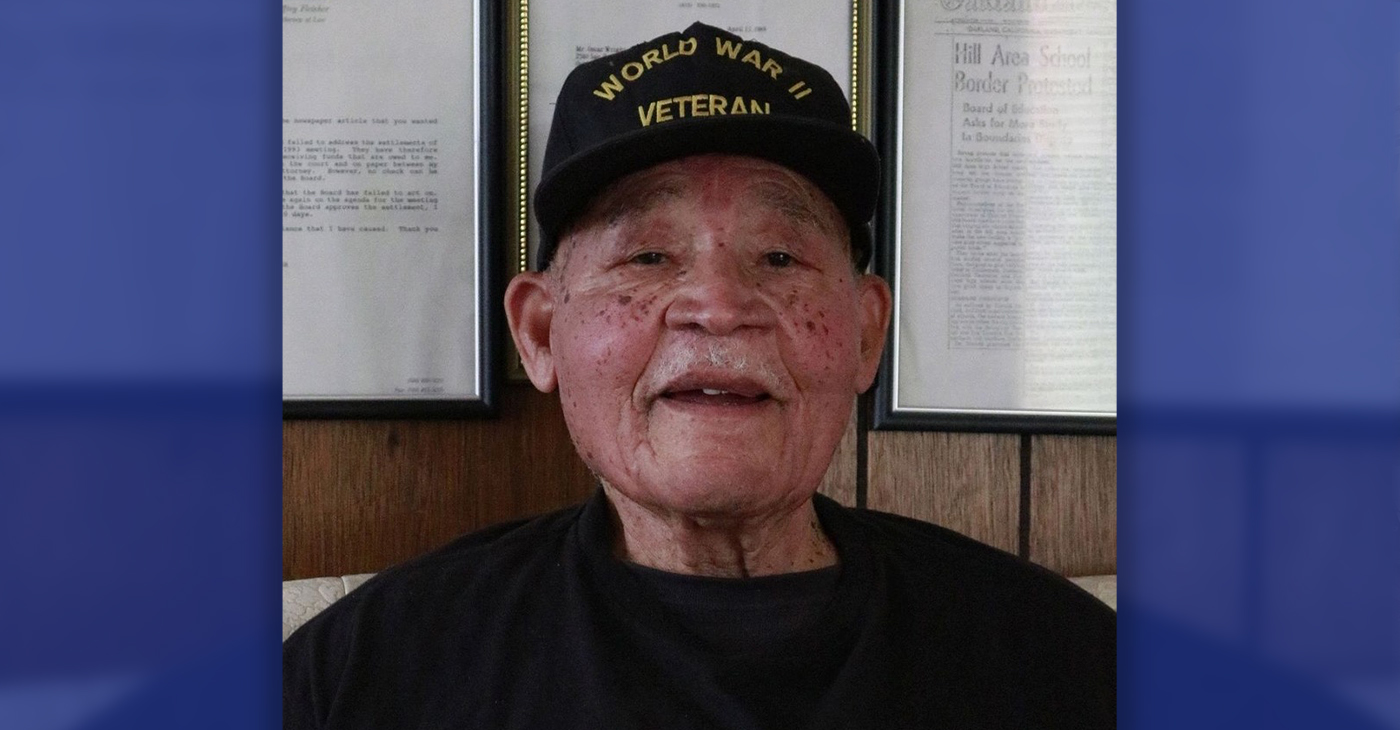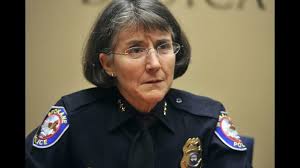Education
Tavis Smiley Visits the Bay Area to Discuss “Death of a King”
Imagine being beaten by your father so severely that you have to spend two weeks in the hospital recovering.
That was the story told by Tavis Smiley at the age of 12 when his father became so enraged after he and his sister were falsely accused of doing something.
While he says the incident broke his spirit at the time – his father had never acted that way before – it became the defining moment for the rest of his life.
After Smiley was released from the hospital, a deacon from his church gave him a box of recorded speeches by Martin Luther King Jr.
Smiley remembered hearing King’s voice and his message of love that taught the young even with the hate, anger and love he had for his family, that he had to love his way through the situation.
“He literally and figuratively saved my life,” said Smiley.
Speaking at the Commonwealth Club in San Francisco, Smiley explained that King was his hero but joked that most people only know the civil rights leader for one speech and for one line and think that was all he was about.
“Dr. King has been so sanitized and sterilized that we don’t know who he is,” Smiley said. “We’ve frozen [him] in 1963.”
Calling it his passion project, Smiley’s new book, “Death of a King,” looks at the last year of his life  beginning April 4, 1967, when Ken gave his “Beyond Vietnam” speech and ends with his assassination exactly one year later.
beginning April 4, 1967, when Ken gave his “Beyond Vietnam” speech and ends with his assassination exactly one year later.
Smiley reminded his audience that while King is represented as a deity in death, he was demonized during his lifetime. His speech condemning the War in Vietnam was the turning point because that was when the world turned against him, said Smiley.
King’s speech criticized the war and criticized America for not dealing with its own poverty. The media attacked and shunned him. The NAACP, the Urban League, Adam Clayton Powell and Thurgood Marshall all condemned King.
In addition, thee were paid FBI informants, and King was receiving death threats daily.
“In the darkest and most difficult hour of life is where you find yourself,” Smiley said. “My favorite Martin is the one in the last year of his life when everything and everyone turns against him.”
And that’s the point of emphasis in Smiley’s “Death of A King.” Despite the controversy, the naysayers, the nonbelievers, King continued to preach his message and hold firm to his belief. And the leader continued to do so up until his death.
Before he died, King had already prepared his sermon for the upcoming Sunday, titled “Why America May Go to Hell,” said Smiley.
“Society pays a true price for ignoring truth tellers,” he said.
Activism
Living His Legacy: The Late Oscar Wright’s “Village” Vows to Inherit Activist’s Commitment to Education
Kingmakers of Oakland (KOO), a nonprofit organization that works to improve educational and life outcomes for Black boys and men, stated that “Oscar Wright is one of the most prolific, consistent, and committed advocates of equity for Black students and Black Families here in Oakland for the past six decades.”

By Antonio Ray Harvey, California Black Media
Activists mourning Oscar Carl Wright’s death, have pledged to continue his lifelong mission of advocating for Black students and families in Northern California.
Wright, 101, who passed away on Nov. 18, was involved in Oakland’s educational affairs until his death.
Now, friends and admirers acknowledge that carrying on his legacy means doubling down on the unfinished work that Wright dedicated his life, time, and resources to, according to Y’Anad Burrell, a family friend and founder of San Francisco-based Glass House Communications (GHC).
“Mr. Wright did a lot of work around equity, specifically, for Black students based on their needs — whether it was tutoring, passing classes, or graduating,” Burrell said.
Wright became a champion for his children’s education, recognizing the disparities between their school experiences and his own upbringing in the Mississippi Delta.
Burrell told California Black Media (CBM) that the crisis of unequal access to resources and a quality education continues to affect the Oakland Unified School District (OUSD).
According to Oakland Reach, in the city of Oakland, only 3 in 10 Black and Brown students are reading at or above grade level. In addition, only 1 in 10 are doing math at or above grade level.
Oakland REACH is a parent-run, parent-led organization. It aims to empowers families from the most underserved communities to demand high-quality schools for their children.
Wright’s work as an activist had impact across the state but he was primarily known in the Bay Area. Alongside the Black United Front for Educational Reform (BUFER), he filed a complaint against OUSD for violating the Civil Rights Act of 1964.
In 2000, the OUSD school board proposed an action plan to address educational inequity, but it was never implemented.
Wright later founded the African American Honor Roll Celebration at Acts Full Gospel Church, an award that recognizes Black students with a grade point average of 3.0 or better. Each year, more than 1,000 students are honored at this ceremony.
Kingmakers of Oakland (KOO), a nonprofit organization that works to improve educational and life outcomes for Black boys and men, stated that “Oscar Wright is one of the most prolific, consistent, and committed advocates of equity for Black students and Black Families here in Oakland for the past six decades.”
Burrell said that one of the main reasons Wright’s work was so essential for families and children in Oakland that is the direct relationship between acquiring a quality education and affording quality housing, maintaining food security, achieving mental wellness, and securing stable employment.
Wright was the child of sharecroppers from Coahoma County, Mississippi. He attended Alcorn State University, a Historically Black College and University (HBCU).
In the late 1950s, Wright and his family relocated to the Bay Area where he worked as a contractor and civil engineer. He later became an active member of the National Association for the Advancement of Colored People (NAACP).
Burrell said the people who will carry on Wright’s work are part of a “village” that includes KOO’s CEO Chris Chatmon. Wright was a mentor to Chatmon.
“It will not be one entity, one person, or one organization that picks up the baton because it was a village effort that worked alongside Mr. Wright for all these years,” Burrell said.
Burell says that legacy will live on.
Black History
Ashleigh Johnson: Pioneering the Way in Water Polo
Ashleigh Johnson attended Princeton University, where she played for the Tigers and dominated collegiate water polo. During her time at Princeton, she became the program’s all-time leader in saves and was recognized for her extraordinary ability to anticipate plays and block shots. She was a three-time All-American and was pivotal in leading her team to multiple victories. Balancing rigorous academics and athletics, she graduated with a degree in Psychology, showcasing her determination both in and out of the pool.

By Tamara Shiloh
Ashleigh Johnson has become a household name in the world of water polo, not only for her incredible athleticism and skill but also for breaking barriers as the first Black woman to represent the United States in the sport at the Olympic level. Her journey begins as a determined young athlete to a record-breaking goalkeeper.
Born on September 12, 1994, in Miami, Florida, Ashleigh grew up in a family that valued sports and academics. She attended Ransom Everglades School, where she was introduced to water polo. Despite water polo being a niche sport in her community, she quickly stood out for her remarkable agility, intelligence, and reflexes. Her unique skill set made her a natural fit for the demanding role of a goalkeeper.
Ashleigh attended Princeton University, where she played for the Tigers and dominated collegiate water polo. During her time at Princeton, she became the program’s all-time leader in saves and was recognized for her extraordinary ability to anticipate plays and block shots. She was a three-time All-American and was pivotal in leading her team to multiple victories. Balancing rigorous academics and athletics, she graduated with a degree in Psychology, showcasing her determination both in and out of the pool.
In 2016, Ashleigh made history as the first Black woman to be selected for the U.S. Olympic Water Polo Team. Representing her country at the Rio Olympics, she played a crucial role in helping Team USA secure the gold medal. Her stellar performances earned her the distinction of being named the tournament’s top goalkeeper, further cementing her status as one of the best players in the sport’s history.
Ashleigh didn’t just stop at one Olympic appearance. She continued her dominance in water polo, playing a key role in Team USA’s gold medal win at the 2020 Tokyo Olympics. Her ability to remain composed under pressure and deliver outstanding saves in crucial moments made her an irreplaceable member of the team.
At the age of 29, Johnson appeared in her third Olympiad in Paris at the 2024 Summer Olympics. Their first match was against Greece and the US team won easily and Johnson only gave up 4 points. U.S. Olympic head coach Adam Krikorian shared, “She’s an incredible athlete. She’s got great hand-eye coordination, great reflexes and reactions. And then she’s fiercely competitive – fiercely. And you would never know it by her demeanor or by the huge smile on her face. But to us, on the inside, we know how driven she is to be one of the best ever to do it.”
Team USA Women’s Water Polo ended their Olympic season in fourth place after a 10 – 11 loss to the Netherlands. Johnson only allowed 37 percent of the shots from the Netherlands.
Beyond her achievements in the pool, Ashleigh has used her platform to advocate for diversity in water polo and sports in general. As a trailblazer, she recognizes the importance of representation and works to encourage young athletes, particularly those from underrepresented backgrounds, to pursue their dreams.
Ashleigh has spoken about the challenges she faced as a Black woman in a predominantly white sport and how she turned those obstacles into opportunities for growth.
Activism
2024 in Review: 7 Questions for CAAASA
Serving as an informational resource to the California Department of Education (CDE), CAAASA makes recommendations on several of the department’s priorities, including curriculum and instruction, staff development, parent involvement, funding, and gender specific issues.

By Edward Henderson, California Black Media
The California Association of African American Superintendents and Administrators (CAAASA) is a group of educational leaders from across the state. The organization is committed to identifying critical issues in public education related to the performance of African American students and addressing them through education reform initiatives.
Its membership includes school superintendents, assistant superintendents, directors, and administrators. CAAASA has a long-standing history of hosting institutes, meetings, conferences, and various special events focused on education.
Serving as an informational resource to the California Department of Education (CDE), CAAASA makes recommendations on several of the department’s priorities, including curriculum and instruction, staff development, parent involvement, funding, and gender specific issues.
CAAASA has submitted testimony to the Speaker of the Assembly aimed at improving the status of African American males relative to their over-representation in the penal system and underrepresentation in the nation’s colleges and universities.
Additionally, CAAASA has worked in partnership with the Association of California School Administrators (ACSA) to sponsor events and programs that have been successful in addressing the needs of African American students.
This year, the organization sponsored a statewide conference in Sacramento titled, “Education is a Civil Right.”
Recently, California Black Media (CBM) spoke with Dr. Adam Clark, the President of CAAASA, about the organization’s successes, disappointments, lessons learned and future plans heading into the new year.
Responses have been edited for clarity and length.
What was your most important achievement in 2024 and why?
The most important achievement was organizing our statewide professional development summit to mark the 70th anniversary of Brown v. Board of Education. We focused on research and strategies to improve education for African American and other students of color. Afterward, we partnered with the National Coalition of Educational Equity to host a convening in Washington, D.C., continuing our efforts to drive progress.
How did your leadership and investments improve the lives of Black Californians?
We launched two new Leadership Academies for aspiring administrators and superintendents. These programs help build a pipeline of future administrators committed to improving education for all students, especially students of color. By focusing on closing opportunity gaps, we’re ensuring Black Californians have the support and resources they need to succeed in the education system.
What frustrated you the most over the last year?
The ongoing inequities Black students face are the most frustrating. Despite our progress, challenges still exist.
What inspired you the most over the last year?
I was inspired by the collaboration and energy at our national conference in Washington, D.C., where leaders from across the country united to focus on educational equity. Seeing so many passionate advocates gave me hope that real, lasting change is possible when we work together.
What lesson did you learn in 2024 that will guide your decisions next year?
I learned the importance of collective action. Building coalitions of educators, lawmakers, and civil rights leaders is essential to addressing the root causes of inequity in our schools.
CBM: What is the biggest challenge Black Californians face in one word?
Inequity.
CBM: What is your main goal for 2025?
My main goal is to speed up the implementation of evidence-based strategies that improve Black student achievement. Through partnerships, policy work, and professional development, I want to ensure our schools are equipped to meet the needs of Black students and help every learner succeed.
-

 California Black Media4 weeks ago
California Black Media4 weeks agoCalifornia to Offer $43.7 Million in Federal Grants to Combat Hate Crimes
-

 Black History4 weeks ago
Black History4 weeks agoEmeline King: A Trailblazer in the Automotive Industry
-

 California Black Media4 weeks ago
California Black Media4 weeks agoGov. Newsom Goes to Washington to Advocate for California Priorities
-

 Activism4 weeks ago
Activism4 weeks agoOakland Post: Week of November 27 – December 3, 2024
-

 California Black Media4 weeks ago
California Black Media4 weeks agoCalifornia Department of Aging Offers Free Resources for Family Caregivers in November
-

 Activism2 weeks ago
Activism2 weeks agoButler, Lee Celebrate Passage of Bill to Honor Congresswoman Shirley Chisholm with Congressional Gold Medal
-

 Activism2 weeks ago
Activism2 weeks agoPost News Group to Host Second Town Hall on Racism, Hate Crimes
-

 Activism2 weeks ago
Activism2 weeks agoDelta Sigma Theta Alumnae Chapters Host World AIDS Day Event

























































